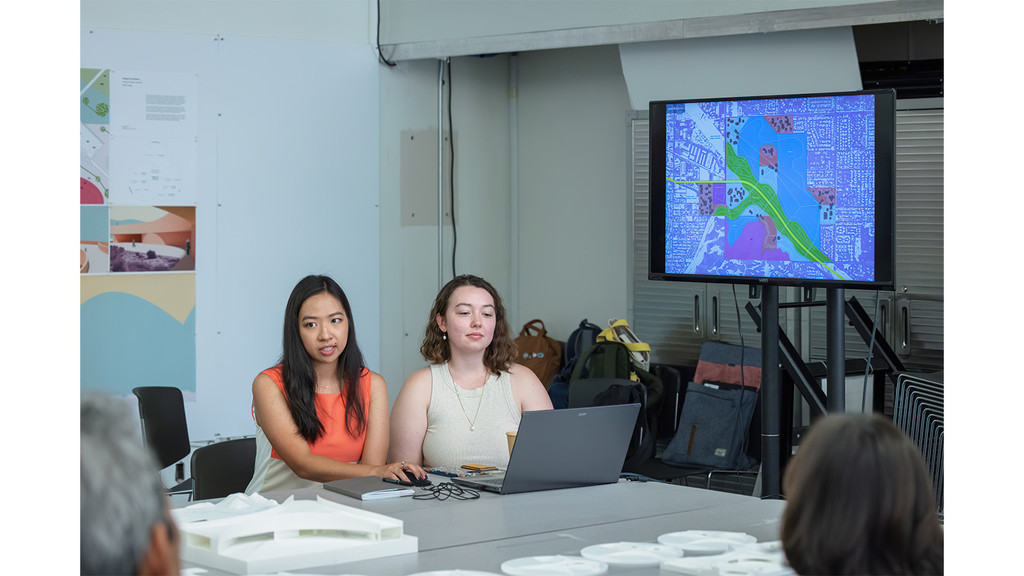
Charley Andrews, Jane Wu (both MArch '24) win top honors in Metropolis Planet Positive Awards
Nov 22, 2024
UCLA Architecture and Urban Design's Charley Andrews and Jane Wu (both MArch '24) have received top honors in Metropolis magazine's 2024 Planet Positive Awards, with their AUD project "Indigenous Urbanism" earning the Student Work award. Andrews and Wu completed the project for Jeffrey Inaba's 2023-2024 UCLA AUD Research Studio, "Active Architecture."
The annual Metropolis Planet Positive Awards honor projects and designers that exemplify "sustainable, healthy, just design" at various scales. Award categories include Projects and Products, from civic and educational buildings and sites to flooring, textiles, and lighting; Innovation, including awards like "Best Impact on Health and Wellness" and "Best Overall Decarbonization"; and People, including the Best Student Work award.
Inaba's year-long "Active Architecture" studio considered, among other things, how architecture might more actively encourage well-being for humans and environment alike, especially as we age. With "Indigenous Urbanism," Andrews and Wu posit that the health and longevity of people and communities are inherently tied to the health of the land they exist within.
"Indigenous Urbanism" centers around a master plan for Coachella Valley's Cathedral City, a proposal that reconnects previously divided land, consolidates the land and sovereignty of the Agua Caliente Band of Cahuilla Indians, and delivers a layer of new program comprising housing, commercial space, and amenities like a welcome center. Andrews and Wu drew on research on Indigenous knowledges, land ownership policies, and the history of settler colonialism in the Coachella Valley to inform their project, including conversations with the Agua Caliente Band.


Their proposal suggests a regenerative future that connects people to the land on a daily basis, interrogates and negotiates border conditions, and rebalances the relationship between architecture and landscape. Through urban design, the grid is re-utilized for connection and expansion of the Agua Caliente’s sovereignty; through architecture, people experience land in intense and unexpected ways, nurturing relations to land based on attachment and reciprocity.
"I really appreciate that the research studio allowed us to explore the social, political, and environmental agency of architecture, especially in ways that exceed the boundaries and scales that architecture typically inhabits," Wu notes.


Check out our full Student Gallery for "Indigenous Urbanism," and visit Metropolis for their coverage of Andrews and Wu's project.
Related Faculty |
Jeffrey Inaba |